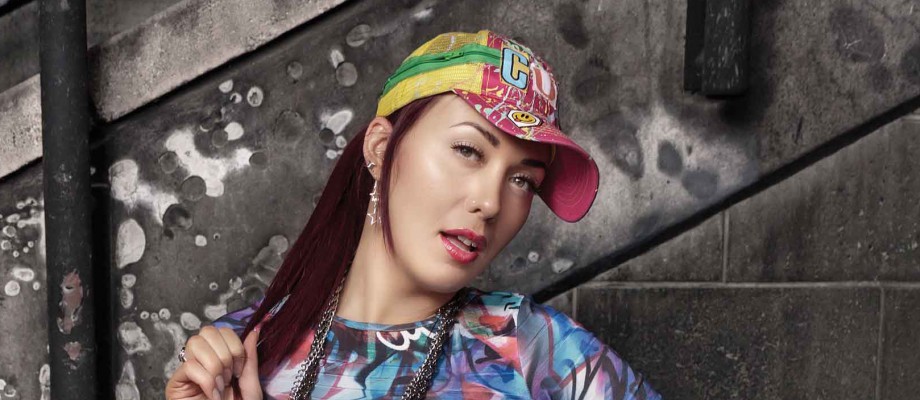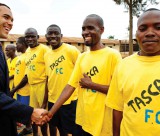
The next steps in equality
November 3rd, 2014
Twelve years ago, Professor Sarah O’Hara and her partner celebrated the birth of their first child. Professor O’Hara phoned the University’s HR department to find out about maternity leave for same-sex parents. The query completely threw the officer who answered the call.
“It wasn’t that they didn’t want to help me,” she remembers. “It was just that they didn’t know how to respond. It was the first time they’d been asked the question — at the time the University had no policy in place that covered leave entitlement for same-sex parents. My query highlighted that things had to change.”
It’s because her own experience that the Pro-Vice Chancellor was so pleased to be introducing a special trans awareness event at the University’s Jubilee Campus – organised by the very same HR department. She believes that the event, which included training for managers in supporting trans staff and students, showcases just how far the University has come in terms of becoming more inclusive and supportive.
A talk from activist Paris Lees (pictured), who grew up in Hucknall, was a highlight of the event. Last year Paris topped The Independent’s Pink List — the top 50 most influential LGBT people in the country. She was a recent panellist on BBC’s Question Time, talking about her involvement in campaign All About Trans to improve the representation of trans people in the media.
Paris’s three years at university were a key part of her life. It was at the University of Brighton that she transitioned and began to live as a woman. But her university experience wasn’t easy.
Paris said: “I thought ‘I’ll go down to Brighton, I’m starting university, make a fresh start’ and I’ll go there as a girl and that’ll be my new life – and I didn’t realise what a huge pressure that would be.
“Every time I left the house it felt like a test – what if they notice that I’ve got big hands or if I laugh with a deep voice? I became quite paranoid and isolated. And occasionally I would get people who would shout things like ‘you f*cking tranny’ or ‘did you used to be a bloke?’”
Paris also had more typical student concerns – such as how to financially support herself. She ended up having sex for money. She said: “These people were travelling from all over the country to actually come and see me; not in spite of me being trans – but because of it, which boosted my self-esteem in a way.”
But despite this skewed self-esteem boost, Paris was miserable and contemplating suicide.
She said: “I do hate coming here and regurgitating this sob story because, as trans women, misery narratives are one of the few stories we’ve actually been allowed to tell. But obviously I was asked to talk about the issues affecting transgender woman and, unfortunately, these are them.”
Paris got involved in trans activism, began to earn a living through writing and is happier than she’s ever been. “I’m living a full life, and by that I don’t mean entirely good and easy, but full – and experiencing all of it and living a meaningful life. And this all comes from my decision to own my own identity and stop being ashamed of who I was and to be part of something bigger than myself.”
But Paris’s story isn’t unique, and the difficulties involved in changing gender cannot be overlooked. As her experiences at Brighton show, it is vital that trans staff and students are supported.
Paris joined trans activist Tara Hewitt, NUS LGBT Officer Sky Yarlett, the University’s deputy director of HR Clare Martlew and LGBTQ Network Chair Dr Max Biddulph on a panel to discuss trans issues in education, including how universities can improve support and inclusion.
Sky believes education should be a ‘safe space’, saying: “This is an incredible event – and I’m seeing it happening more and more. There are 600 students’ unions in the UK, the majority of which have LGBT societies — autonomous groups of LGBT students coming together. The students are leading the change in universities – they’ll encounter a problem and, instead of being hung up about it, they’ll ask ‘how’re we going to change this?’
“One of the things universities should do is look at what the students are doing, because I fully believe that students should be the ones leading the university.”
Tags: All About Trans, Clare Martlew, Dr Max Biddulph, LGBTQ, NUS LGBT Officer Sky Yarlett, Paris Lees, Pro-Vice-Chancellor, Professor Sarah O’Hara, Tara Hewitt
Leave a Reply
Other Issue 74

Time accolade for prison reformer
Former Nottingham Law student Alexander McLean is one of the ‘30 People Under 30 Changing the […]

Nottingham No1 for graduate recruitment
The UK’s top employers have cited Nottingham as the best university for finding graduate recruits. According […]

